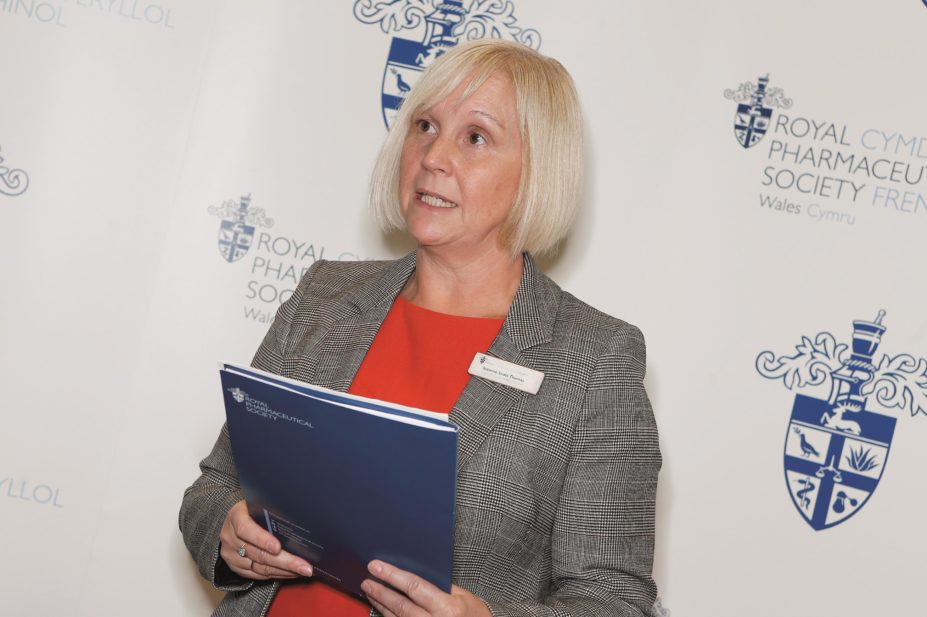
Royal Pharmaceutical Society
The Welsh Pharmacy Board (WPB) held its summer meeting on 20 June 2017 at RPS Wales’ headquarters in Pontprennau, Cardiff.
After welcoming board members, matters moved on to the election of the board chair and vice chair. Suzanne Scott-Thomas and Paul Harris were re-elected unopposed to their existing posts, which they will hold for two more years. Scott-Thomas and Harris will also, because of their respective positions, continue to serve as the Welsh board’s representatives on the Royal Pharmaceutical Society assembly.
Business plan
Scott-Thomas and Mair Davies, director for Wales, shared progress from the board’s business plan for the second quarter of 2017. RPS Wales continued to engage with the All Wales Dementia roundtable and the Welsh Government strategy group for dementia care, and represented RPS Wales on the Cross Party Group Meeting on stroke care. Scott-Thomas and Davies also gave evidence on the efficacy of primary care clusters to the Health, Social Care and Sport Committee.
During the rest of 2017, the WPB will deliver the Medicines Safety Event, to be held on 29 November in Hensol, near Cardiff, and will continue to work with the Welsh Government, NHS Wales, Public Health Wales and other bodies to continue promoting the full integration of pharmacy into all care models. The WPB will also contribute to the GB-wide campaign on the role of pharmacists in antimicrobial stewardship, developing Welsh-specific initiatives.
Policy and consultations update
Elen Jones, practice and policy lead, updated the Board on RPS Wales’ activity on consultations and policy influencing. “All consultations we have responded to recently have had impact,” she said. “So we are saying ‘no’ to the right ones”. Jamie Hayes responded by asking if RPS Wales could share that success with membership, “so people can see that responding is not intimidating”. It was agreed that this should be a priority, with Jones adding that when responding to policy the RPS should “try to go out to members and not keep it Cardiff based”.
Jones then reported on the consultations responded to since the last board day. RPS Wales has been offered, and has accepted, membership of the Welsh Government task and finish group for the draft national dementia strategy and RPS recommendations in ’Improving medicines use for care home residents’ was referenced by organisations including the Royal College of Psychiatrists, the Alzheimer’s Society and the Royal College of Speech and Language Therapists. Additionally, RPS Wales has been invited to give oral evidence on the use of anti-psychotic medication in care homes to the Health, Social Care and Sport Committee, in October 2018.
Jones particularly flagged the Health, Social Care and Sport Committee’s interactions with RPS Wales which, he said, have “increased significantly over the last 18 months” as a consequence of the Society becoming “more proactive in our policy work and consultation responses … Since the beginning of 2016, RPS Wales has been asked to follow up consultation responses with oral evidence for 3 out the 8 inquiries that the committee has undertaken”.
In policy updates, Jones announced that RPS Wales’ policy on long-term conditions was cited in the Royal College of Physicians’ consultation response to the Health, Social Care and Sport Committee’s Inquiry into Primary Care. The report on ‘Improving medicines use for care home residents’ has been endorsed by the Welsh Government and has led to RPS Wales being invited onto two Welsh Government committees on care homes. RPS Wales has also been asked to support the older people’s commissioner’s (OPC) inquiry into primary care services for older people.
RPS Local Engagement
In the afternoon, Jodie Williamson, professional development and engagement lead, chaired a discussion focussing on the new local engagement model. Wales, like Scotland, opted for an RPS Local model — in which activities are managed by a local co-ordinator, working with steering groups where appropriate — to replace local practice forums.
Williamson asked board members to explore how RPS Wales can best utilise the newly created local coordinators to deliver member engagement at a local level — particularly, what local co-ordinators can do to increase member engagement.
Rob Davies suggested discussions of case studies — for example, is deprescribing ethical? — with a ‘what would you do?’ approach. Ruth Mitchell said that webinars would be welcomed, especially for people with children. In response, Mair Davies said local groups would, annually, hold a minimum of two events, which could be virtual. Davies added that all local events would have a board member present. Suzanne Scott-Thomas used the example of a previous event hosted by board member Jamie Hayes, focussed more on leadership than pharmacy in particular, and asked if more events like this would be welcomed, with a ‘cross-fertilisation’ between pharmacy-specific and non-pharmacy content.
Williamson said that the suggestions would now be considered by the RPS Wales team.
Finally, in open business, Kimberley Shields, general counsel at the Royal Pharmaceutical Society, briefed the board on UK law on data protection (with reference to the general data protection regulation, which comes into force next year), intellectual property, trademarks and copyright, as well as bribery, confidentiality, bullying and harassment, and how these laws impact on the work of the Society and its boards.
- The date of the next Welsh Pharmacy Board meeting is set for 14 September 2017.
You may also be interested in
Long service of members

Membership fees 2022
